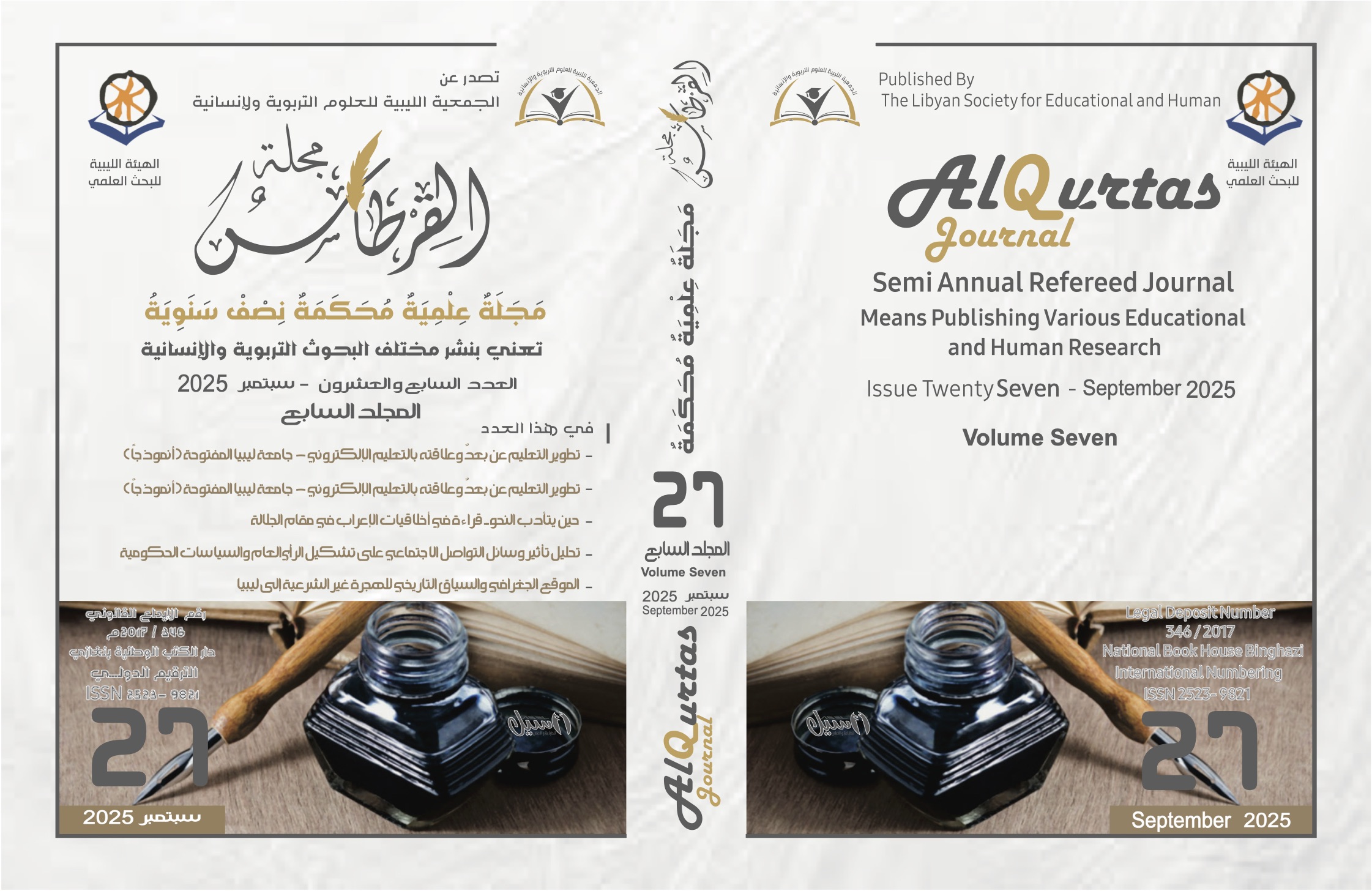Economic Inflation and Its Impact on Birth Control: A Field Study on Some Families in the Municipality of Tripoli, Libya
Main Article Content
Abstract
This research explores the relationship between economic inflation and birth control, through a field study conducted on a sample of families in the city of Tripoli. The study is based on the main hypothesis that inflation—via rising prices and declining purchasing power—drives families to limit the number of children as a strategy to cope with increasing financial burdens.
The study aims to clarify the concept of inflation and its social dimensions, analyze how rising living costs influence reproductive decisions, and examine the correlation between inflation severity and family planning trends. A structured questionnaire was used to collect data from a random sample. The theoretical framework covered key economic and social concepts and included a review of recent Arabic studies. The expected findings suggest that economic hardship plays a critical role in delaying or limiting childbearing, indicating a strong connection between financial conditions and demographic change.
Downloads
Article Details

This work is licensed under a Creative Commons Attribution-NonCommercial 4.0 International License.

